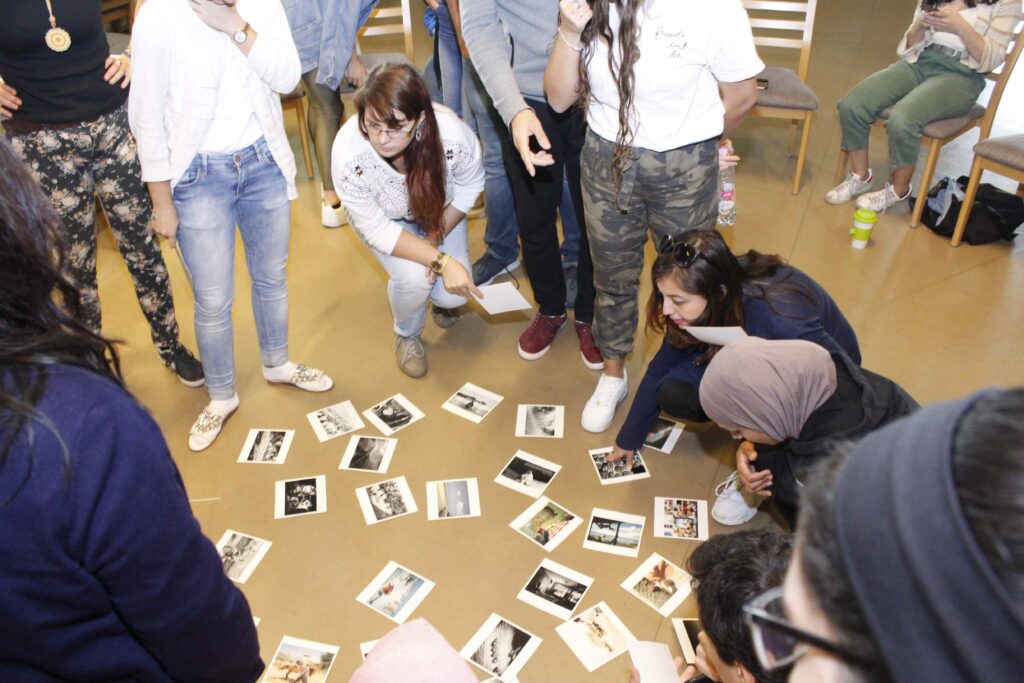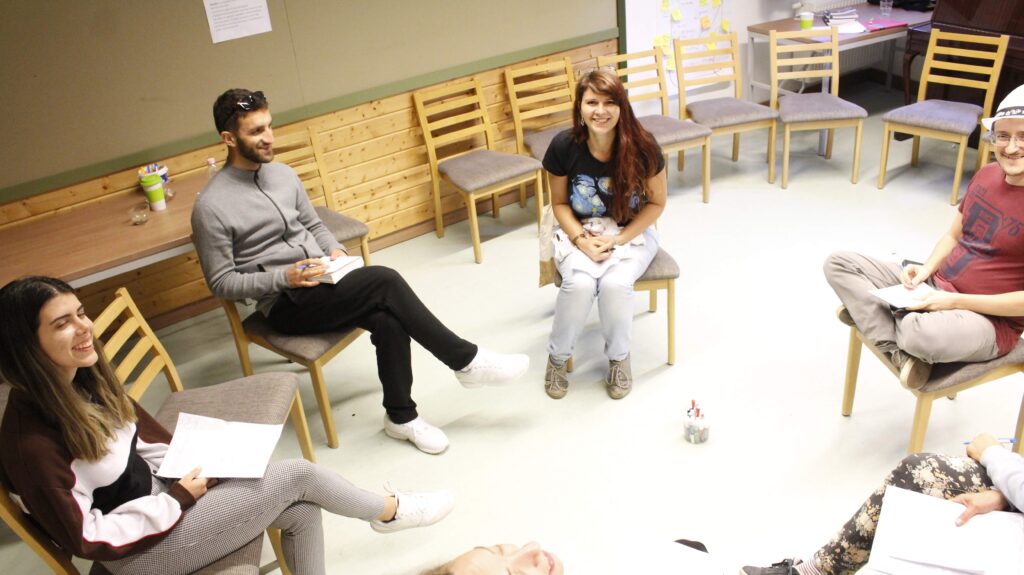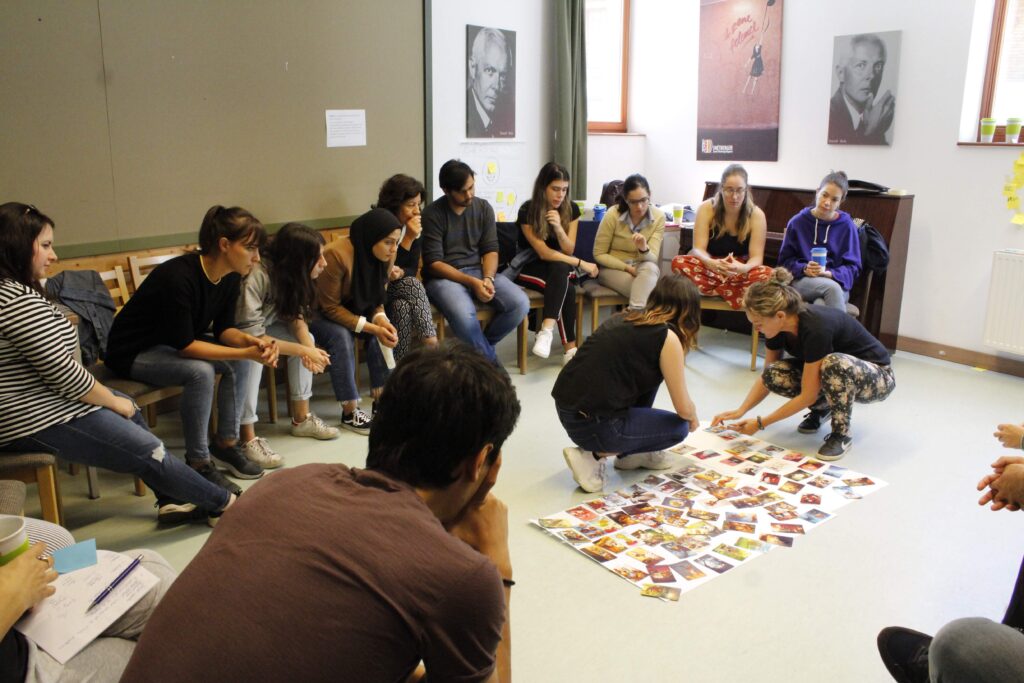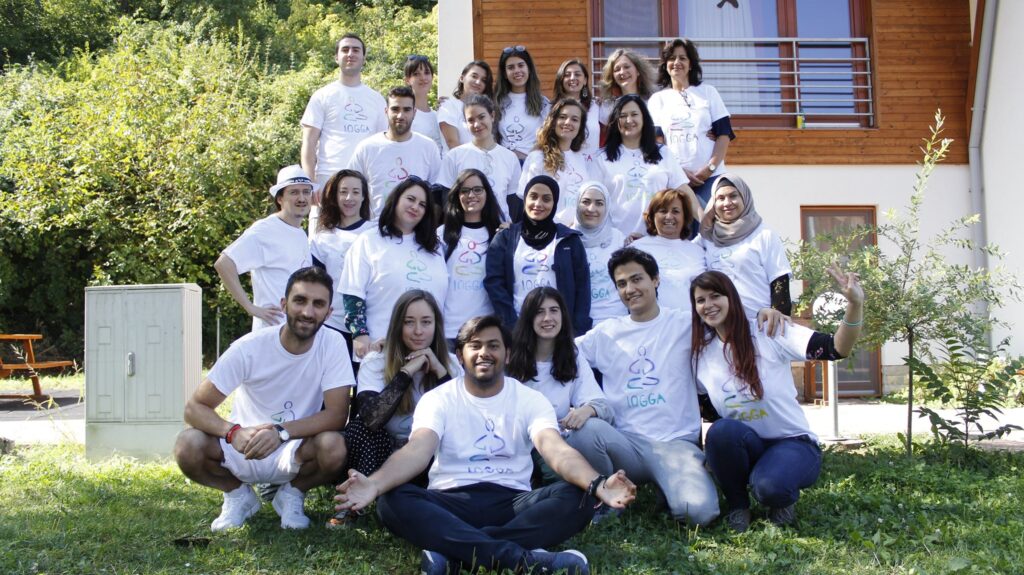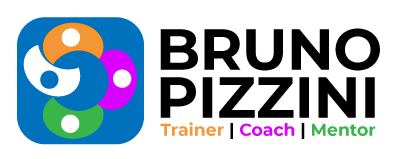In September 2019, I was part of the training team for IOGGA – Inside Out: Growing Gender Awareness, a unique and transformative international training course that took place in the small village of Felsőörs, Hungary. Organized by Anthropolis, the training brought together 28 participants from nine countries – Albania, Finland, Hungary, Italy, Portugal, Romania, Slovenia, Spain, and Turkey. Participants included youth workers, educators, trainers, and facilitators, all of whom play a vital role in shaping social attitudes and creating inclusive environments for young people.
The focus of the training was to explore how gender roles, stereotypes, and inequalities affect young people across Europe – and to develop the capacity of social actors to address these issues through education. We looked at how gender inequality appears in different fields, from politics to education, from culture to entrepreneurship, and compared realities at the local, national, and European levels.
The week was full of creative, reflective, and at times emotional experiences. One of the most powerful moments was the “Poncho’s Life – Don’t Accept Silence” workshop. Participants shared personal stories of gender inequality – not just through words, but by creating wearable ponchos that symbolized their experiences. These personal narratives, presented in an open and respectful space, sparked deep connections and helped participants make sense of their roles in challenging harmful norms.
From the very start, we created a group agreement together, ensuring that each person felt safe and supported. We used interactive tools like the Backpack of Needs and Expectations to explore each person’s learning goals and concerns, and created space to name fears, hopes, and strengths in non-verbal ways. These early exercises built a strong sense of trust that stayed with us throughout the week.
As the training unfolded, we explored real-life examples of gender-based harassment and inequality in our own countries. Participants arrived having done research at home, and they shared data and cases creatively – helping us all see the similarities and differences between our contexts. We then symbolically “let go” of the pain and frustration collected throughout the sessions, through a reflective ritual where we released our lists into the fire.
Beyond storytelling, we focused on action. We ran a practical “Know-How-To-Do” workshop where participants learned how to design gender-related educational campaigns and activities. From flash mobs and school workshops to Erasmus+ project ideas, everyone had the chance to turn theory into practice. The ideas were later developed into follow-up initiatives that participants could bring back to their communities.
As a closing act, we created a Capsule of the Future — a symbolic moment where each participant wrote a message to their future self, their children, or the next generation. These messages were personal, empowering, and full of hope for a more gender-aware society.
The experience didn’t end in Felsőörs. The group launched a Facebook page to keep sharing outcomes and keep the conversation going. You can visit the page here: IOGGA on Facebook
IOGGA was not just about gaining knowledge. It was about unlearning, listening, sharing, and taking the first steps toward building a world where gender equality is not an ideal but a lived reality. It reminded us that change begins from within – and when we grow our own awareness, we can begin to transform the communities around us.
